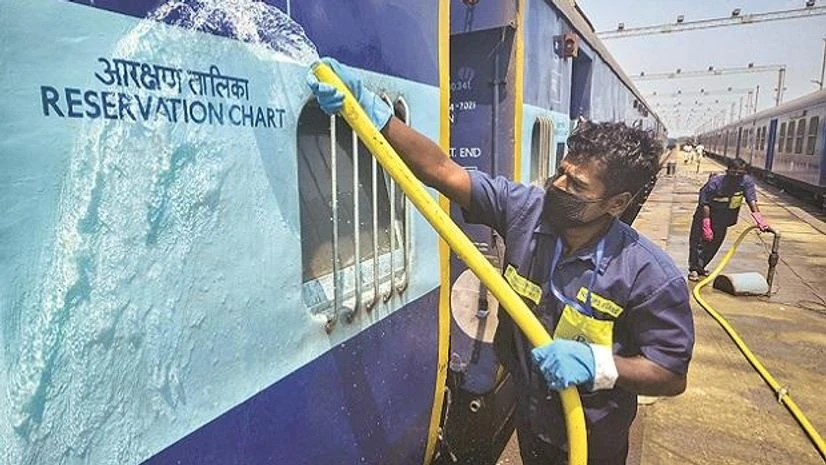The Railways on Friday said certain job profiles of its employees might change in the coming days but asserted that there will be no job losses, a day after the national transporter issued a letter, asking its general managers to slash 50 per cent vacancies and freeze creation of new posts.
In an online briefing, Director General (HR) Railway Board, Anand S Khati said the Railways will be "rightsizing and not downsizing".
He said due to technological interventions in the national transporter, certain job profiles might change, wherein the personnel will be re-skilled, but there will be no job losses.
"We will be rightsizing and not downsizing. Let there be no doubt that the Indian Railways will remain the largest employer in the country. We will move from unskilled to more skilled jobs," he said.
He said the order (sent on Thursday) was to surrender non-functional, non-safety vacant posts which would help in creating additional safety posts for new railway infrastructure projects already underway.
Also Read
He asserted that all ongoing recruitment drives for various categories of posts will continue as usual, adding that those posts which have been notified or advertised will not be impacted in any way.
The Railways currently has 12,18,335 employees and spends 65 per cent of its income on payment of salaries and pension.
Since 2018, the Railways has notified 72,274 vacancies in safety category and 68,366 in non safety category, taking the total number of vacancies notified to 1,40,640.
The letter to the general managers, approved by the Financial Commissioner, Railways said the freezing of new posts, review of posts created in last two years and surrendering of 50 per cent of existing vacancies was part of "an action plan for economic measure and rationalisation of expenditure."
The letter led to speculations that the Railways was geared up to downsize its staff.
While Khati maintained that there would be no job losses in the national transporter, in a letter dated June 19, the financial commissioner of the Railways had told the general managers of all the zones that the traffic earnings of the national transporter dropped by 58 per cent at the end of May, as compared to the corresponding period of the previous year and that there was a "need to explore new areas of expenditure control and enhancement of earnings".
The financial commissioner had also proposed a slew of austerity measures -- freeze in the creation of new posts, rationalisation of manpower at workshops, shifting outsourced work to CSR, moving ceremonial functions to digital platforms and cutting down on use of stationary by 50 per cent.
In the letter, the financial commissioner had also advised the zones to control expenditure by reducing staff cost, rationalising staff and also by making them perform multiple tasks.
It had also asked the zones to review contracts, reduce energy consumption and cut cost in administrative and other areas.

)
